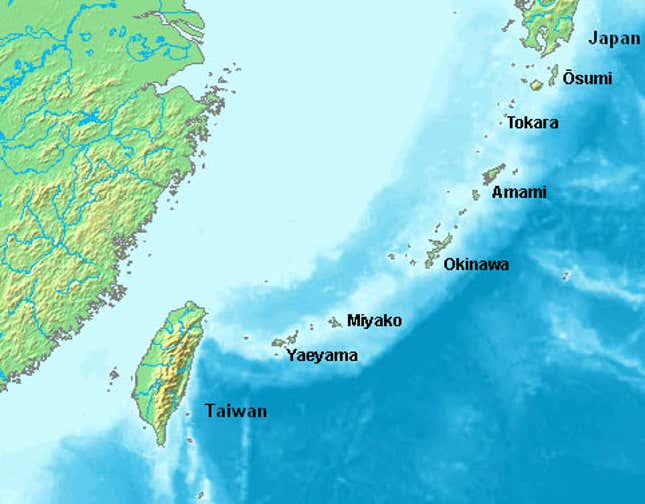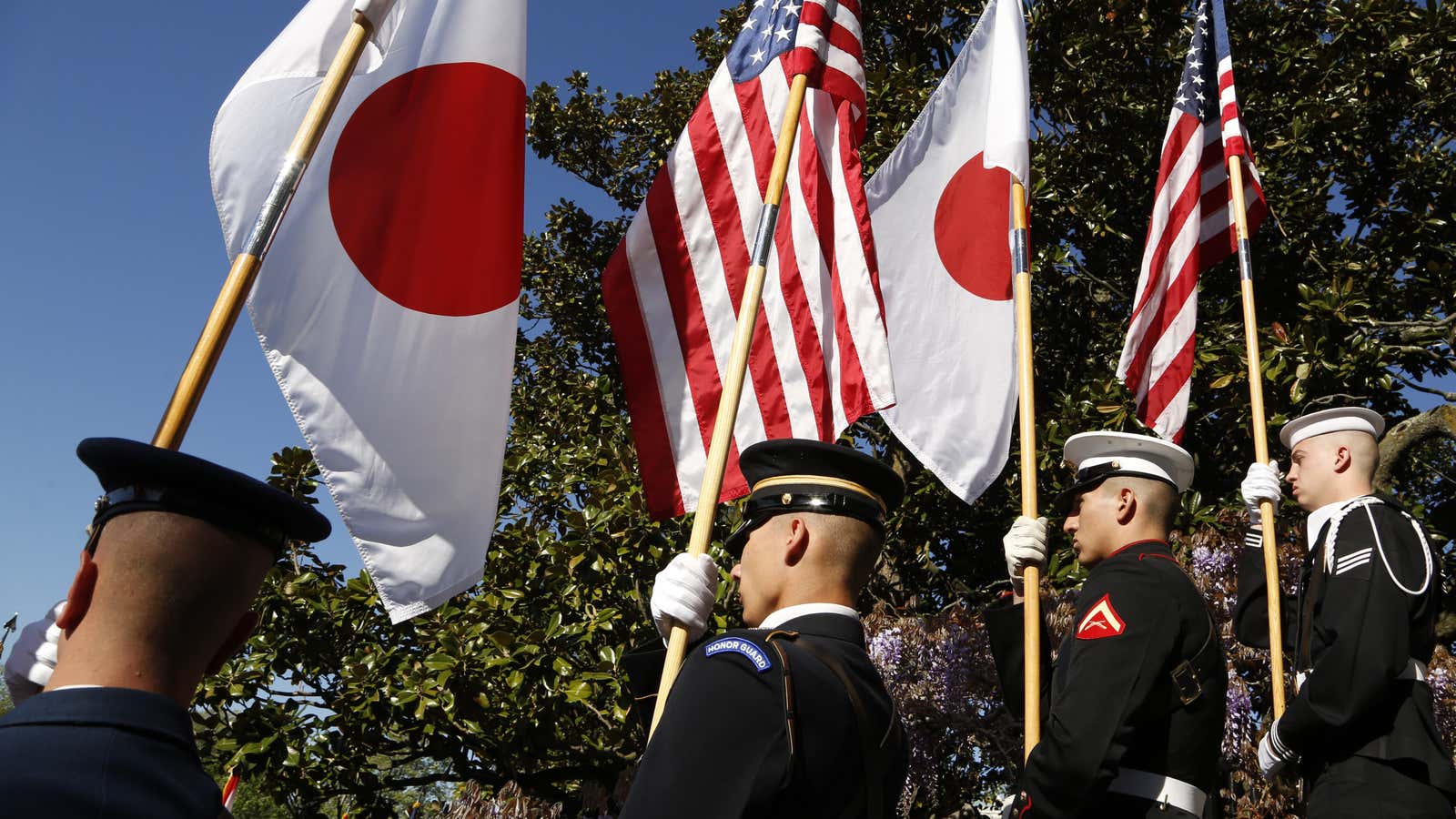During the first US presidential debate, Republican candidate Donald Trump was highly critical of China, but also went after long-time US ally Japan, saying Japan doesn’t pay the United States enough for its defense services. He said:
Just to go down the list we defend Japan. We defend Germany. We defend South Korea. We defend Saudi Arabia. We defend countries. They do not pay us what they should be paying us because we are providing tremendous service and we’re losing a fortune. That’s why we’re losing, we’re losing, we lose on everything… It’s very possible that if they don’t pay a fair share because this isn’t 40 years ago where we could do what we’re doing. We can’t defend Japan.
The remarks, though, like those about China’s currency, or his own earlier stance on climate change or the Iraq war, were not factually correct. In fact, Japan pays plenty, and the US gets plenty in return. The arrangement is based on the 1960 Japan-US Security Treaty, which amended a version signed eight years earlier. Under it the US agrees to help defend Japan against foreign adversaries, such as China or North Korea, and in return it is allowed to base troops in Japan.

Numbering at about 49,000, those troops are stationed mostly at bases on the island of Okinawa, which sits across from China’s coast and is part of Japan’s Ryukyu island chain. And Japan foots much of the bill, paying for the costs related to hosting the troops, while the US pays operation expenses.
Japan spends about $2 billion a year on maintenance and utilities for US bases and facilities, said Zack Cooper of the Center for Strategic and International Studies, in an April interview with CNN. He agreed with Army general Vincent Brooks that it’s actually cheaper to base US troops in nations like Japan and South Korea, and have them cover much of the cost, than to base them back home.
In addition to a lower bill, of course, the US gains the ability to more readily project power and influence in the Asia-Pacific region. That’s especially important now, with China growing increasingly assertive in the East China Sea and South China Sea. The US has a vested interest in keeping shipping lanes open—and not under the potential control of any one nation.
China insists nearly all of the South China Sea is its own territory, despite an international tribunal invalidating that claim in July. In recent years it has been rapidly building and expanding militarized, artificial islands in the vital waterway, which annually hosts more than $5 trillion in global trade.
China became especially assertive after the US lost its bases in the Philippines in the early 1990s. Were US troops to leave Japan, Beijing would see more opportunities for the robust expansion of its maritime might, and fears of the South China Sea becoming a “Chinese lake” would inch closer to reality.
It’s hard to see how that would be a good deal for America.
